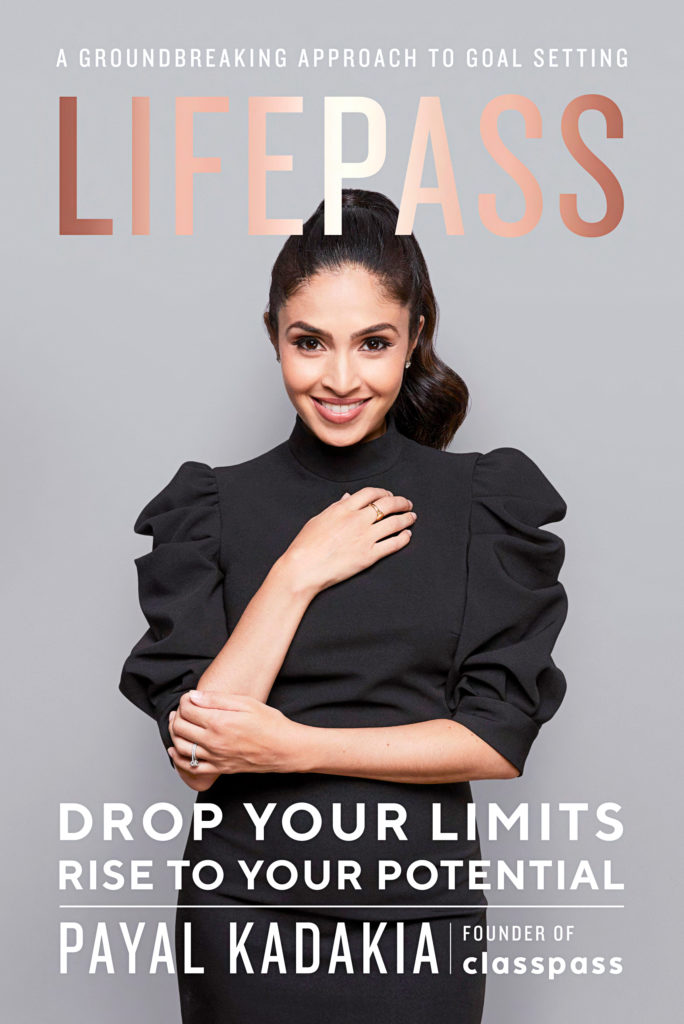ClassPass Founder Payal Kadakia’s Lessons for Dance Entrepreneurs
Payal Kadakia knows how to bring a bold vision to life. She is the founder, executive chairman and former CEO of ClassPass, an app that helps customers book classes and appointments in fitness, beauty and wellness. Founded in 2013, it achieved “unicorn” status—or a billion-dollar valuation—in 2020 before its acquisition by Mindbody the following year. “I truly believe it was the dancer in me that built ClassPass,” she says, referring to her creativity, self-discipline and community focus. “I have learned to show up to everything in my life with that high-quality sense of skill and execution.”

Growing up in New Jersey, Kadakia studied Indian classical dance. She went on to establish MIT Chamak, the Massachusetts Institute of Technology’s first Indian dance company, as a management science student in 2002. In 2008, she founded The Sa Dance Company while working full-time as a management consultant, and remains its artistic director. The organization’s aim is to increase mainstream awareness of Indian dance, and serve as a platform for expressing the Indian American identity through movement. “I want to change the game,” she says, regarding the way Indian culture is represented in concert dance.
Now, in a new book—LifePass: Drop Your Limits, Rise to Your Potential—A Groundbreaking Approach to Goal Setting—Kadakia shares the stories and strategies behind her success. Dance Business Weekly spoke to her about the lessons that new dance entrepreneurs can take away from her professional journey.
1. Just get started.
“Sometimes, we think that we have to go so big in launching something,” says Kadakia. “We forget that everything great starts in a very incubated phase.” When Sa began, Kadakia held a showcase at the Ailey Citigroup Theater for a modest but enthusiastic audience of 150 people. “That show changed the trajectory of my life,” she says.
Use the skills you gained through dance to find your purpose and take the first step toward executing your vision. “Dancers are unbelievable at getting things done,” says Kadakia.
2. Find your “why” and let it guide you.
Get clear on what drives you and your business. “When you’re choreographing a piece, you can’t lose the meaning behind it,” says Kadakia. “It’s the same thing in a company.” In LifePass, she describes this as a passion that exists for you and to benefit others. Consider what “magic,” or standout qualities, can fuel yourself and your organization.
As a child and teen, she felt pressured to downplay her Indian heritage to fit in at school. Entering her consulting career, she thought dance would prevent her from being taken seriously. Instead, she came to recognize her differences as part of her strengths.
At the heart of ClassPass is a mission that moves Kadakia: to help people celebrate who they are, become who they want to be, and find joy and interpersonal connection.
3. When you overcome your fears, support can come from unexpected places.
Kadakia was the associate director of digital strategy and business development at Warner Music Group when she decided to found ClassPass. After announcing her impending departure from Warner to start a company, she was apprehensive about making the leap. “I was so scared at that moment to live my dreams,” she says.
Upon hearing the news, Warner’s vice chairman scheduled a meeting with her—to offer a $10,000 investment into her then-startup. Committing to her dream made her aware of opportunities she hadn’t considered. “As I was closing that door, I saw 50 other doors open,” she says. “It was so hard for me to see those doors in the beginning.”
4. Fill your team with the right people.
“The talent you take into the world, especially to do creative things, is so important,” Kadakia says. One subpar fit for your organization can jeopardize the entire company. Establish pillars, or guiding principles, to govern your hiring decisions and model the right leadership qualities for your team. Then, evaluate employees accordingly.
Her pillars for Sa are technique, expression and respect. “Expression is the magic of Sa; it’s this x-factor of abhinaya, which is a big part of Indian dance,” she says. For ClassPass, she chose positivity, growth and efficiency: three valuable qualities to help an expanding company achieve its goals, and a good fit with Kadakia’s leadership style.
As your organization grows, support will become necessary. For Kadakia, sharing responsibility is important, whether in Sa, where she receives help creating shows and choreography, or ClassPass, which grew from a small team to hundreds of staff members.
Knowing what you do best and putting others in positions to thrive is also key. “There are things that other people can do better than me, and I need to allow them to do them,” she says.
5. Leadership does not require burnout.
After ClassPass became successful, Kadakia’s daily routine as CEO led her away from the more creative aspects of her work that she found the most fulfilling. She decided to step away from day-to-day operations into the executive chairman role to have more control over her time. But as one of the few female heads of a high-growth startup, she initially wondered whether the shift would discourage other women and girls from aspiring to leadership positions. Kadakia learned that doing what was best for herself would set a positive example.
“We’re all multifaceted, whether it’s our cultures and ethnicities or our talents,” says Kadakia. She notes that in art organizations, leadership is often shared between an artistic director and an executive director, unlike in tech companies. “It’s very executive-director–heavy,” she says. “I think I was always trying to straddle both. But for me to keep adding the magic into ClassPass, I needed to lean on the artistic side of myself.” If you feel unable to be your full self in your position, think about why you’re doing it and how to better suit your needs.
6. In challenging times, keep planning and moving forward with transparency.
“During a pandemic, everyone is dealing with uncertainty,” says Kadakia. “I think honesty goes the furthest—about where things are, what we don’t know and what we do know. Even though things keep changing, the best thing you can do is plan.”
Like many organizations, ClassPass and Sa shifted to digital formats when the COVID-19 pandemic hit. Kadakia, then a new mother, organized Zoom rehearsals for Sa after she was cleared to exercise again. “Since April 2020 until now, we have met every week as a company,” she says. Sa also held a virtual national audition in early 2021. “Indian dancers are still not represented enough in the artistic communities,” she says. “I wanted to give them a chance to be part of a company that was hopefully going to continue to help change this narrative.”
7. Rewrite the rules.
Never be afraid to defy convention. “First, dream up your own world; be a child again,” says Kadakia. “Then, figure out the real-world constraints, and which ones are really constraints and which ones aren’t,” she continues. “I talk about how to do this in my book. We think there are so many things we can’t change and move, but we really can.”



